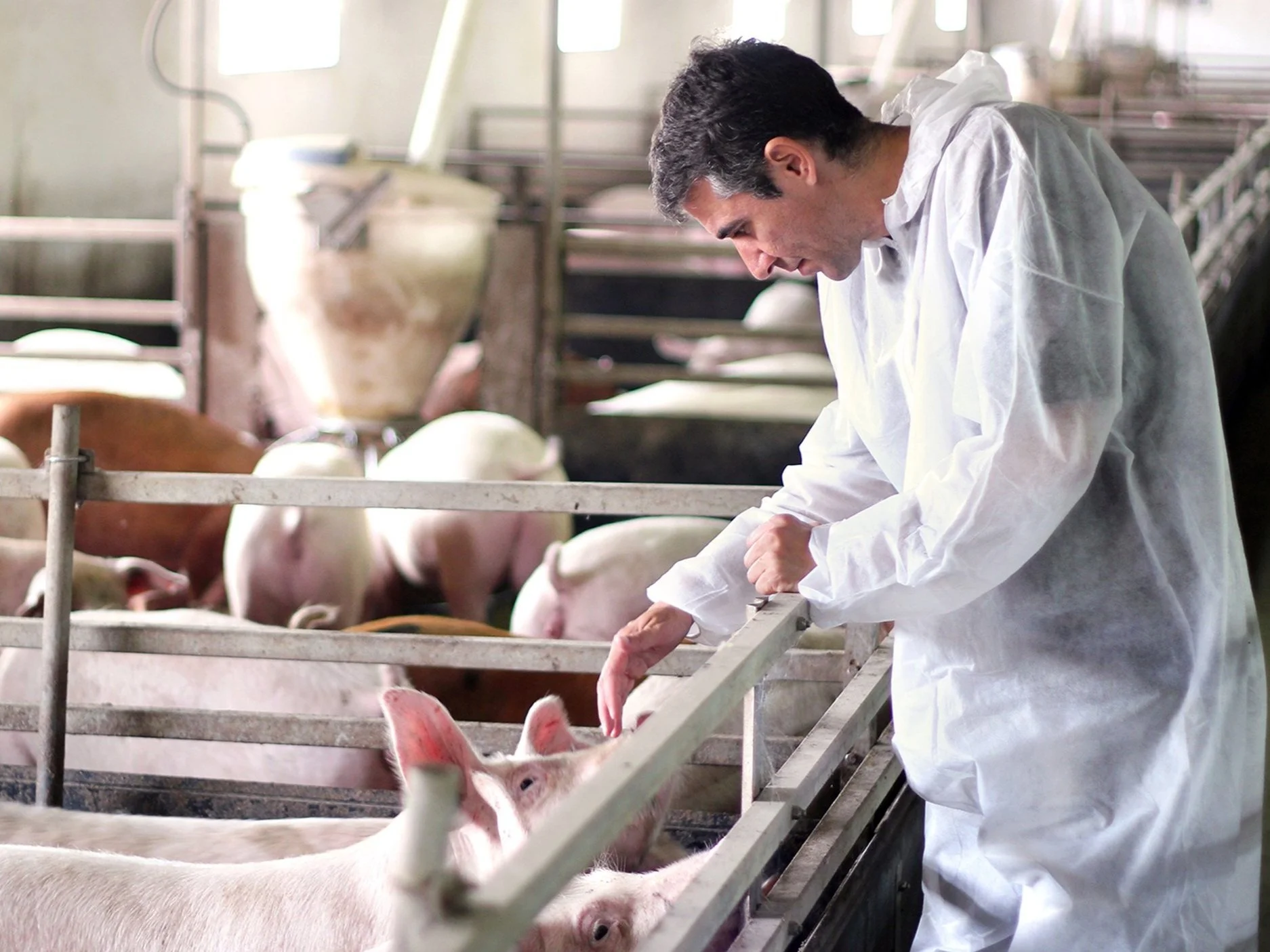The pork sector, government and wildlife groups in Saskatchewan have come together to address the feral pig situation before it reaches the level seen in other parts of the world.
Read MoreResearch conducted by the Western College of Veterinary Medicine, in partnership with the Prairie Swine Center with funding provided by the Natural Sciences and Engineering Research Council of Canada and 14 industry partners, indicates grower-finisher pigs can be stimulated to engage in play.
Read MoreThe General Manager of Sask Pork reports efforts to bring populations of wild pigs under control in Saskatchewan are showing signs of success.
Read MoreA Partner with Polar Pork Farms suggests global food security is being jeopardized by the war in Ukraine. A combination of factors including shortages of locally produced feed grains due to last year's drought, transportation challenges due to COVID and generally higher global grain prices due to the war in Ukraine has pushed grain prices to record levels.
Read MoreThe Vaccine and Infectious Disease Organization (VIDO) reports the use of intrauterine vaccination as an alternative to needles to protect sows, gilts and their piglets from PED is showing promise. Researchers with the Western College of Veterinary Medicine and VIDO are exploring the use of intrauterine vaccination as an alternative to needles.
Read MoreHealth Minister Jean-Yves Duclos announced the finalized Front-of-Package labelling regulations today, which are part of the Government of Canada’s Healthy Eating Strategy. In the finalized regulations, ground pork and ground beef are exempt from the requirement of having a front-of-package warning label.
Read MoreA Partner with Polar Pork Farms says that if the price of feed grain remains at its current high level, consumers can expect higher meat prices. A combination of factors including shortages of locally produced feed grains due to last year's drought, transportation challenges due to COVID and generally higher global grain prices due to the war in Ukraine has pushed grain prices to record levels.
Read MoreSaskatchewan's pork producers are calling on the federal government to follow the lead of other countries and exempt ground pork and beef from proposed front-of-package labeling that would require symbols indicating products are high in fat, sugar or sodium.
Read MoreResearch into the microbiome of piglets taking place in Saskatchewan conducted on behalf of Swine Innovation Porc is assisting in creating new tools to increase the productivity of the swine herd.
Read MoreA Saskatchewan pilot project is testing new technologies that will help pork producers improve biosecurity and protect their herds from disease. Farm Health Guardian and Sask Pork are collaborating to trial truck movement recording technologies at over 20 swine farms or businesses in the province.
Read MorePork producers around the world are expected to be the main beneficiaries of research aimed at developing new subunit vaccines to protect pigs from a common bacteria that reduces the ability of the intestines of pigs to absorb nutrients, resulting in slower weight gain.
Read MoreSask Pork is undertaking a first-of-its-kind in Saskatchewan benchmarking project, thanks to funding from the Agriculture Development Fund (ADF). Sask Pork will receive $150,000 over three years to evaluate antibiotic use on Saskatchewan hog farms.
Read MoreSaskatchewan Agriculture is encouraging the hog industry to reach out to local fire departments to help ensure they are prepared to deal with livestock transportation emergencies. "Livestock Transportation Emergencies" was the topic of a Sask Pork Spring Seminar yesterday.
Read MoreThe Director of Saskatchewan Agriculture's Emergency Response and Inspection Unit says the main focus when dealing with a livestock transportation emergency is safety. "Livestock Transportation Emergencies Require a Team Effort," with Trent Catley is the topic of this week’s Sask Pork Spring Seminar Series slated for Thursday, May 5 at 1:30pm.
Read MoreA researcher with the University of Saskatchewan suggests, rather than helping reduce the wild pig population, sport hunting actually breaks up groups and makes the animals more elusive and harder to find.
Read MoreThe Western College of Veterinary Medicine is encouraging a continued focus on biosecurity on Canadian hog farms amid a later than normal peak in cases of influenza. Typically, the number of cases of influenza in people and in pigs tend to peak in the fall in November-December and again in the late winter or early spring in February-March. By now, numbers would normally be on the decline.
Read MoreSask Pork celebrated Canadian Agriculture Literacy Month (CALM) with a donation of books to elementary schools in Saskatoon and Prince Albert. CALM, celebrated annually every March and into April, is dedicated to teaching students about Canada’s agriculture industry and food story.
Read MoreResearchers are examining possible role of particle size and feed outages on the incidence of gastric ulcers in pigs. Extremely finely ground feed ingredients have been shown to contribute to gastric ulcers in pigs and there's evidence that ingredients like pea starch can cause diets to bind in the equipment, resulting in feed outages.
Read MoreSask Pork is asking pork producers across the province to remain especially vigilant with biosecurity practices now that the highly pathogenic avian influenza (H5N1) has been found in Saskatchewan.
Read MoreThe Director of Risk Management with HAMs Marketing Services is advising pork producers in western Canada to focus on margins rather than the price of hogs or the price of feed as they make their forward contracting decisions.
Read More



















